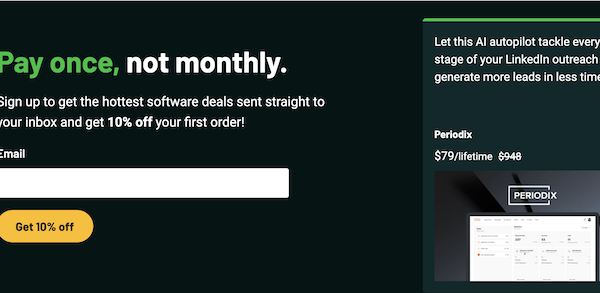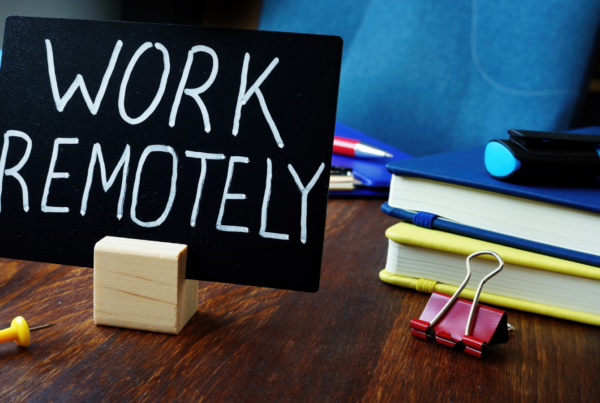Most small-firm lawyers waste time, energy, and money on mindless drudgery.
Not surprisingly, they feel frustrated. But, even worse, is they’re losing major ground because…
Digital technology is rapidly eliminating every kind of low-level work. And it’s massively disrupting every modern business—including law.
WARNING: If you waste time, energy & money on mindless drudgery that can easily be automated or outsourced you’re going to be disrupted and marginalized.
However, if you focus on doing high-level KNOWLEDGE work you’ll survive (and maybe even thrive).
Learn to work “smarter”
You need to learn how to make digital technology work FOR you, not against you.
Step 1
Be time & cost-efficient when you handle any kind of low-level information processing.
Start removing all efficiency bottlenecks.
Here’s an acid test…
You should be able to easily do low-level information processing from anywhere, even if all you have handy is your smartphone.
If not, your tech skills are a serious bottleneck.
And you’re in danger of being disrupted.
Step 2
Develop systems for managing digital data across your firm.
Keep optimizing by removing bottlenecks (i.e. “streamlining”).
Start managing digital workflows in a thoughtful, strategic way.
Can you learn to do this?
Yes..you CAN learn to do things differently if you’re motivated.
You can thrive amidst digital disruption.
But, if you don’t believe you can adapt to the new world, well then…
You might have a “mindset bottleneck.”
And that means you’re stuck at a threshold…
Possibility vs. Impossibility
Henry Ford once observed: “whether you think you can, or think you can’t, you’re right.”
Ford thought he could adapt the unusual workflow used in cattle slaughterhouses to build cars more efficiently and at a much lower cost.
And he was right.
Step 3
You need to develop a “streamlining mindset.”
That’s how you’ll learn to do law work more efficiently and with much lower overhead.
Streamlining means two things:
- Removing bottlenecks (see above), and
- Creating “radical efficiencies.”
A big part of radical efficiency comes from focusing on the vital few things that will help your practice THRIVE.
Do that relentlessly. Obsessively.
And ignore everything else.
How do you know what the vital few things are?
Step 4
Study people who’ve actually created businesses that THRIVE.
For example, people like Charlie Munger, Jeff Bezos, and Ray Dalio.
They have powerful, proven advice on how you can build a thriving business.
Billionaire businessman (and successful lawyer) Charlie Munger says,
“I believe in the discipline of mastering the best of what other people have already figured out.”
Let’s talk about Jeff Bezos. He founded Amazon after succeeding in traditional business.
But Amazon was way more successful than Bezos’ other business ventures.
He figured out how to THRIVE in the world of digital disruption. Big time.
(By the way, he’s currently worth $171 billion).
When people ask Bezos “what’s the new thing that we should be paying attention to,” he has interesting advice…
“Pay more attention to the things that aren’t changing.”
What does that mean, exactly?
It means that you need to focus more on high-level “Knowledge Work.”
Don’t get bogged down with fast-changing technologies. Ignore the shiny tech objects.
Speaking of disruptive tech businesses…
Have you heard of Patrick Collison, the founder of Stripe?
By the way, he’s the youngest person ever to become a billionaire.
Collison observed recently that “the received wisdom in the world of tech start-up companies is…completely and utterly misguided.”
He thinks that too many startup founders believe “you need to be scalable, that you need to have this infrastructure so you can grow to any size.”
But Collison believes “this advice is absolutely wrong.”
So what (in a nutshell) IS Collison’s recommendation for building a thriving business?
“Focus on what’s NOT scalable…”
That’s what the youngest-ever-billionaire recommends to business founders.
So how does this advice apply to lawyers?
Well, it means don’t obsess about low-level stuff, even tech stuff.
Don’t pay too much attention to data processing or any kind of work that can be automated or outsourced.
Step 6
Start leveraging your knowledge. That’s the high-level stuff that good clients will pay more for.
Your knowledge is unique and not easily copied.
It’s not scalable.
But your knowledge is valuable—to you and to your clients.
So that’s your big advantage.
What about technology?
Yes, you need to use technology in your business. But you don’t need to waste time or energy developing a lot of “tech knowledge.”
(You can borrow that from those who already have it.)
You just need to figure out how to streamline, automate, and outsource your low-level work.
Then you can focus obsessively on the vital thing that matters most in your law business…
Your unique and valuable legal knowledge.
That’s what the good clients want, and are willing to pay for.
General Resources
- Check out my Inner Circle (to participate in ongoing discussions about tech tools I discuss and recommend)
- Check out this Law-Tech Assessment if you want specific recommendations for improving based on the technology you’re using in your practice
- Click for a list of the Best Tech Tools for Lawyers
- Subscribe to: The 80/20 Principle newsletter (it’s free)
Use technology to radically improve your law practice by focusing on the few core elements that have the biggest impact.






